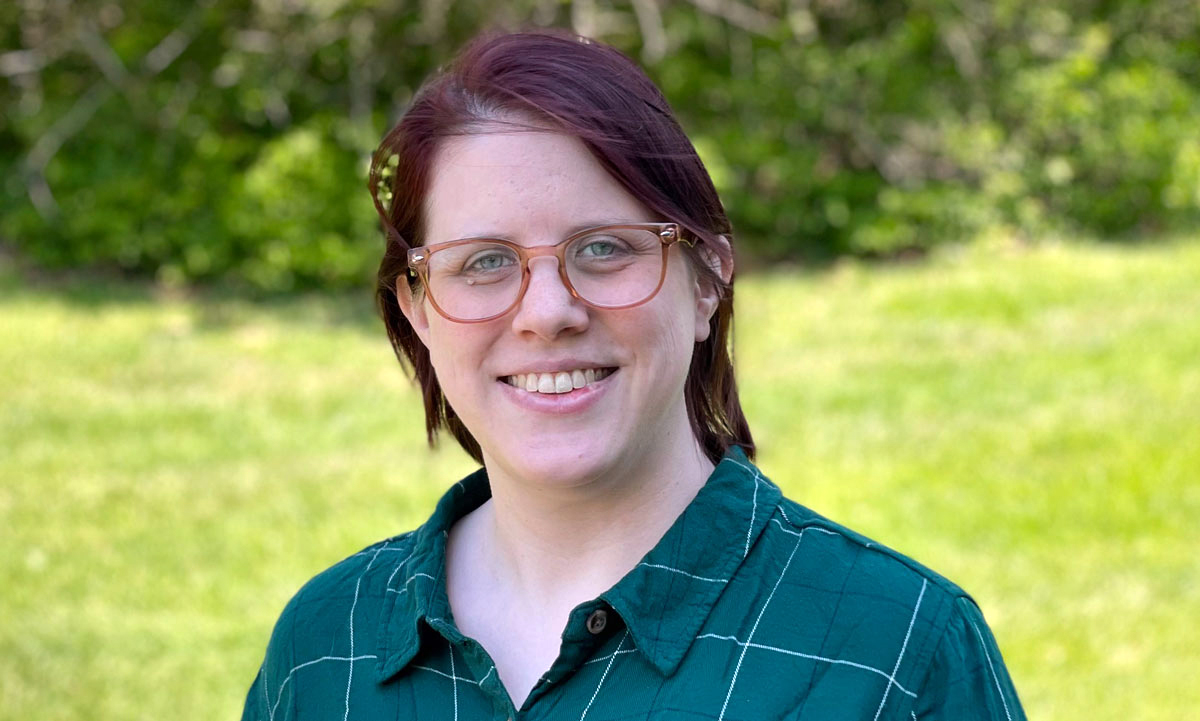Creating Life-Altering Memories
“I am honored to work for a company where I get to help our clients preserve historical documents,” says content specialist Marcia Spicer of her work at Anderson Archival. “Whether they are the private memories from someone who never imagined their words would survive through the generations or a public collection that can be shared with the whole world, by digitizing and helping to preserve history, we get to touch it, to experience it, and even be a small part of it.”
On the Anderson Archival blog, we try to showcase every aspect of digital preservation, from historical tales of preservation to interviews with clients and industry professionals. But we’ve never before shared the thoughts of the Anderson Archival team itself. Marcia Spicer sat down with us and answered some questions about her work digitizing historical documents.
AA: What experience do you bring to the Anderson Archival team?
MS: One of the most exciting things about our team is that we all come from different backgrounds and levels of experiences, but through training and continuing education, we’ve grown into this well-oiled, dedicated digitization machine.
Personally, I have an MA in English. I thought I would use it in writing, and while I do get to write for our blog, I definitely don’t spend the bulk of my time in an “English” mode. During college, my group of friends was a really fun mix of English majors and Historical Preservation majors. I always felt an affinity for them and understood that our areas of focus were cousins. We both worked in the intersection of past and future, helping to make the artifacts and words of the past powerful and accessible in the present. It was just recently that I made the connection. My education came full circle.
While my formal education didn’t have a lot to do with digitization, I did have a minor in Small Press Publications, looking at things like editing, binding, and publications. These factors all weigh in to digitization as well.
I’m incredibly grateful that Anderson Archival prioritizes continued education and training. Between learning from my teammates and keeping on top of the latest best practices, I’ve learned so much, and it thrills me to be able to put all that learning—from my English degree, historical preservation buddies, publication knowledge, and archival training—into practice for our clients.
AA: It sounds like this position was a one-in-a-million find for you.
MS: I honestly think a lot about how lucky I am to be here, to get to do what I do.
AA: Could you share a little more about what you do?
MS: On paper it is pretty straightforward. We take original documents, photos, and bound materials that our clients want to do something with, and we digitize them.
What does that mean?
There’s a careful review and notation of everything that comes in the door. If page 100 comes to us with half of the page ripped out, we record that. If there are little notes tucked between pages, we note that and follow up with the client to see if that’s part of what needs to be digitized or was just put there by accident. We take those documents and capture each surface using our V-cradle scanner or flatbed, and each step of the way there are eyes on the process to make sure that every part of every single page is captured completely, in focus, and accurate to the original.
We take pride in the high level of detail, care, and privacy we offer clients. Depending on what the client wants, we can tweak the light levels to make text more legible or can clean up the page to “erase” scratch marks or handwritten notes. We work with the client to ensure that the final product is going to work for what they need, but also to make sure that they have a true archival-standard copy as their master copy. Then comes a conversation about how this collection is going to be used by their audience, and whether they need us to build features like full-text search, a database, or a website from scratch.
At the end of the day, Anderson Archival is about providing solutions. I make those solutions happen. I get to preserve history through those solutions. It is a bonus—a big one—that through my work I also get to relive experiences that aren’t always recorded in books. I get to experience different viewpoints, so many pieces of the puzzle that makes up what America and the world is today.
AA: Every day offers a new challenge. Is that fair to say?
MS: A new challenge for sure, but also a new opportunity.
Not too long ago I had the chance to work with a diary from the Civil War. As I’m turning the pages of this tiny diary, making sure to treat the delicate pages gently, I’m thinking about the other people who have touched the pages. The family that brought it to us and the original author. I’m thinking about how the client for this project entrusted us—entrusted me—with this one-of-a-kind, prized possession, because they know that having that diary digitized will help it last longer, be easier to use, and be shared far easier than a single physical copy could ever be. As I turn the pages, I see when the author was feeling sadness, fear, joy, awe, confusion… Those words are from over a century ago, but the feelings he recorded are just as real today, just as universal. He might not have his name in the history books, but this day-to-day recording of his experience makes that history real.
A lot of the work we do is some degree of confidential, but when I notice a really impactful quote or startling piece of information, I rush to the team and we share a moment of awe together. I think about that moment when clients get the final product, and they too can pore over the pages to find details that they maybe couldn’t see before or couldn’t risk handling the pages to truly examine. They get to have those moments too.
AA: Thank you for taking some time to share your experience, Marcia. Would you share something you wish people knew about Anderson Archival and the work you do?
What I’ve come to understand is that even though these documents may be old, their importance hasn’t aged. Our clients, their families, and their organizations all still connect to them, because the history is relatable and real. The experiences documented are still applicable and can be learned from today.
Without digitization, a lot of documents, especially the rarest or the most fragile, would never be available for multiple people to experience. Knowing that I’m a part of making something totally unique and potentially life-altering accessible to others means the world to me, and it speaks to the core of what Anderson Archival is.
We’d love to be involved in the story of your collection, whether that is through digitizing materials, building online access, or sharing your own journey on our blog. Whether you’re interested in telling us about your process, or looking for solutions, drop us a line.


